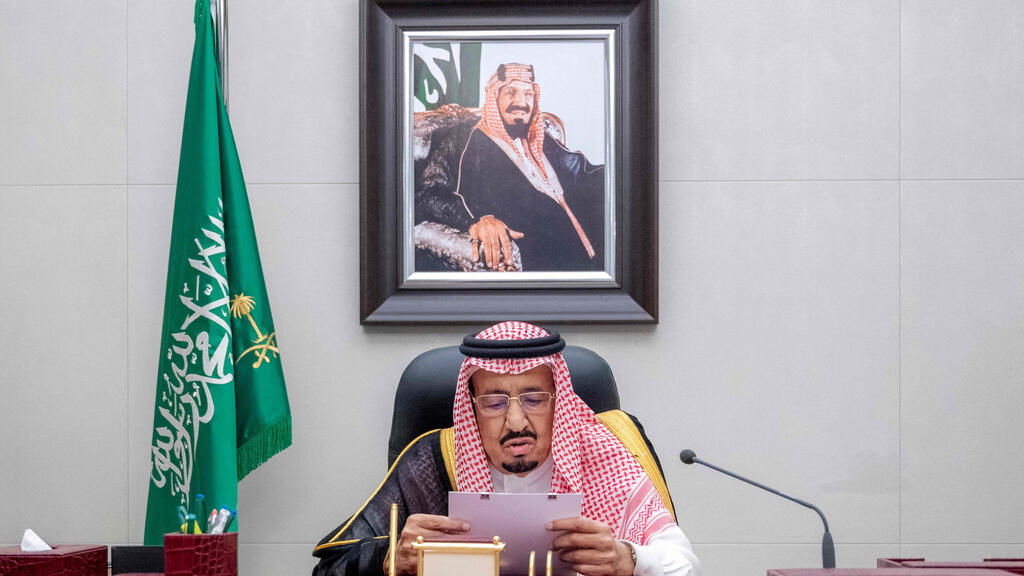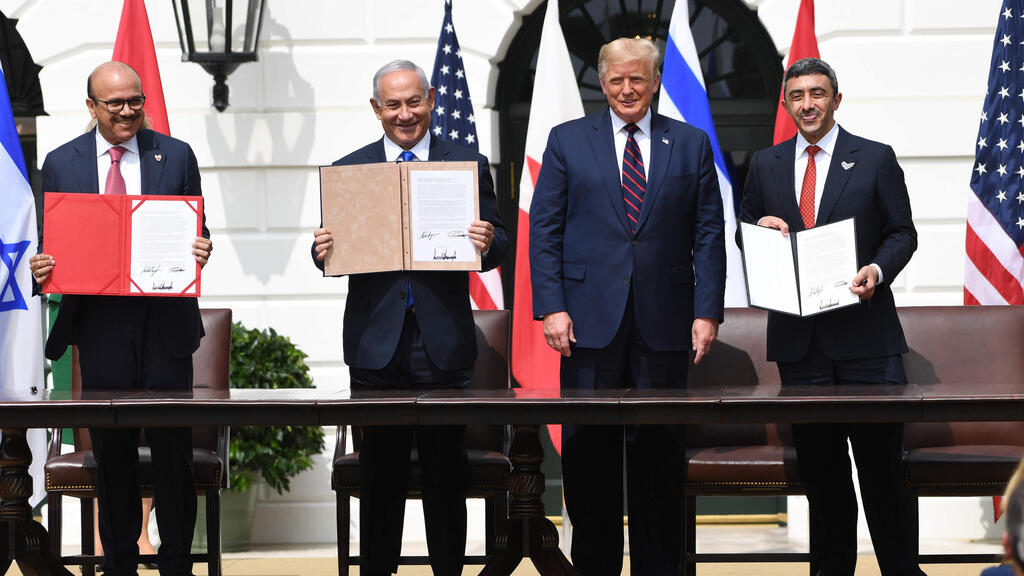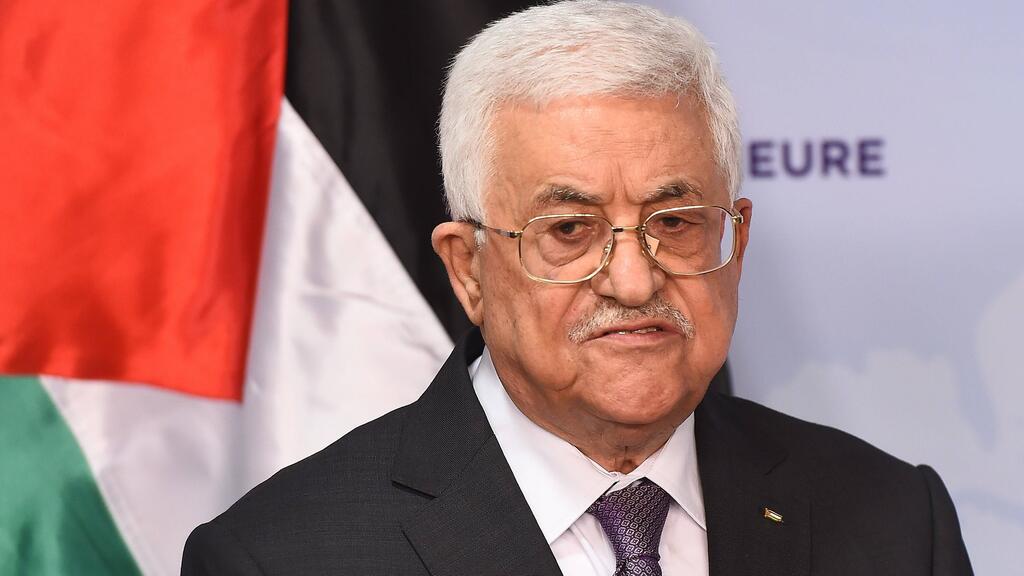Getting your Trinity Audio player ready...
As incoming Prime Minister Benjamin Netanyahu is seeking to strengthen relations with Saudi Arabia. However, in order to do so he must respect what the Saudis need in order to make peace with Israel.
As detailed in the Arab Peace Initiative presented at the 2002 Arab League summit in Beirut, Saudi Arabia has consistently maintained that peace with Israel can only be achieved once the Palestinians and Israelis have reached a two-state solution that includes an exchange of territories.
3 View gallery


Saudi King Salman bin Abdulaziz believes there is room for normalizing relations with Israel
(Photo: AFP)
The Saudis do not believe in rounding corners or shortcuts regarding this matter. This is not due to any affection for the Palestinian leadership – which has a history of seeking opportunities to harm Saudi Arabia and undermine its reputation internationally, but rather because the Saudis were instrumental in proposing the Arab Peace Initiative, which would result in the acknowledgment of Israel by the Arab countries and the establishment of a Palestinian state.
Saudi authorities have made clear to Netanyahu that they would be willing to fully normalize relations with Israel if he reaches a mutually acceptable agreement with the Palestinian side through sincere and honest negotiations. Over time, the Saudis have come to support a solution that would be considered acceptable to the Palestinian people.
Despite this, Netanyahu reportedly has agreed to the creation of a demilitarized Palestinian state within the 1967 territories, with the exchange of minor territories and the maintenance of Israeli settlement blocs. However, these agreements have yet to be finalized due to the ongoing political turmoil in Israel and the shift in direction following Israel’s signing of the Abraham Accords normalization agreement with the United Arab Emirates and Bahrain, as well as treaties with Sudan and Morocco.
It is important to note that Saudi Arabia, under the leadership of Crown Prince Mohammed bin Salman, has not wavered in its stance on relations with Israel. This comes after the Saudi Arabian government discontinued connections with Israel in all areas when Israeli Prime Minister Benjamin Netanyahu and then-head of the Mossad, Yossi Cohen, arrived in the city of Neom in November 2020 without prior consultation, accompanied by then-United States Secretary of State Mike Pompeo.
In private discussions, the Saudis have emphasized their lack of desire for anyone to act as a mediator between themselves and the Israelis. They also made it clear that the interests of the two countries overlap and the revival of security coordination depends solely on Israel’s willingness to make progress with the Palestinians.
From 2017-2020, there was a tacit agreement between Israel and Saudi Arabia, under which Jerusalem advised Riyadh on the Yemen war and other security-related issues.
Saudi Arabia itself has undergone significant internal changes, including increased openness to the West and the promotion of tourism, as well as economic reforms aimed at supporting local entrepreneurship and employment for Saudis.
There are differing opinions regarding the rapid pace of change implemented by Crown Prince Mohammed, with some alleging that it is causing a rift within traditional Saudi society that adheres to the Wahhabi approach. Others argue that such drastic measures are necessary in order to move beyond a period of stagnation and to build a modern society that values both religion and culture, specifically in the Hijaz region, which is home to the two holiest sites for Muslims worldwide.
Despite these efforts, Saudi Arabia remains a controversial and polarizing country, particularly due to its strict interpretation of Islamic law and the lack of political freedoms. The country has faced widespread criticism for its treatment of women, minorities and dissidents, as well as for its role in the ongoing conflict in Yemen. However, in the face of these challenges, Saudi Arabia remains a key player in the Middle East and has a significant influence on regional politics. Its relationship with Israel will therefore be an important factor in shaping the future of the region.
The Saudi crown prince is currently working to secure his position and prepare for his eventual ascension to the throne, while also striving to improve the strained relationship with the United States. He hopes that the United States will recognize his status and that the controversy surrounding the 2018 murder of journalist and Washington Post columnist Jamal Khashoggi will not hinder their relationship.
The Saudis are seeking closer ties with China, but do not view this as coming at the expense of their relationship with the United States, which is considered their most important ally. They also do not have high hopes for Chinese weapons, which they view as on a similar level with those from Russia, and don’t expect any significant benefit to come from strengthening their relationship with China.
Regarding Netanyahu and his promises of normalization with Saudi Arabia, it would be advisable for him to first focus on renewing negotiations with the Palestinians before attempting to engage in talks or visits with the Saudis. All previous talks and secret communications have been halted, so starting anew with the Palestinians would be the appropriate course of action.
In conclusion, while there may be potential for improved relations between Israel and Saudi Arabia, it is crucial for Netanyahu to understand and respect the conditions set forth by the Saudi leadership. Any progress toward normalization likely will depend on the resolution of the Israeli-Palestinian conflict and the fulfillment of the Arab Peace Initiative. In order to move forward, it will be necessary for both sides to engage in honest and constructive dialogue, taking into consideration the concerns and interests of all parties involved.
The story was reprinted with permission from The Media Line



